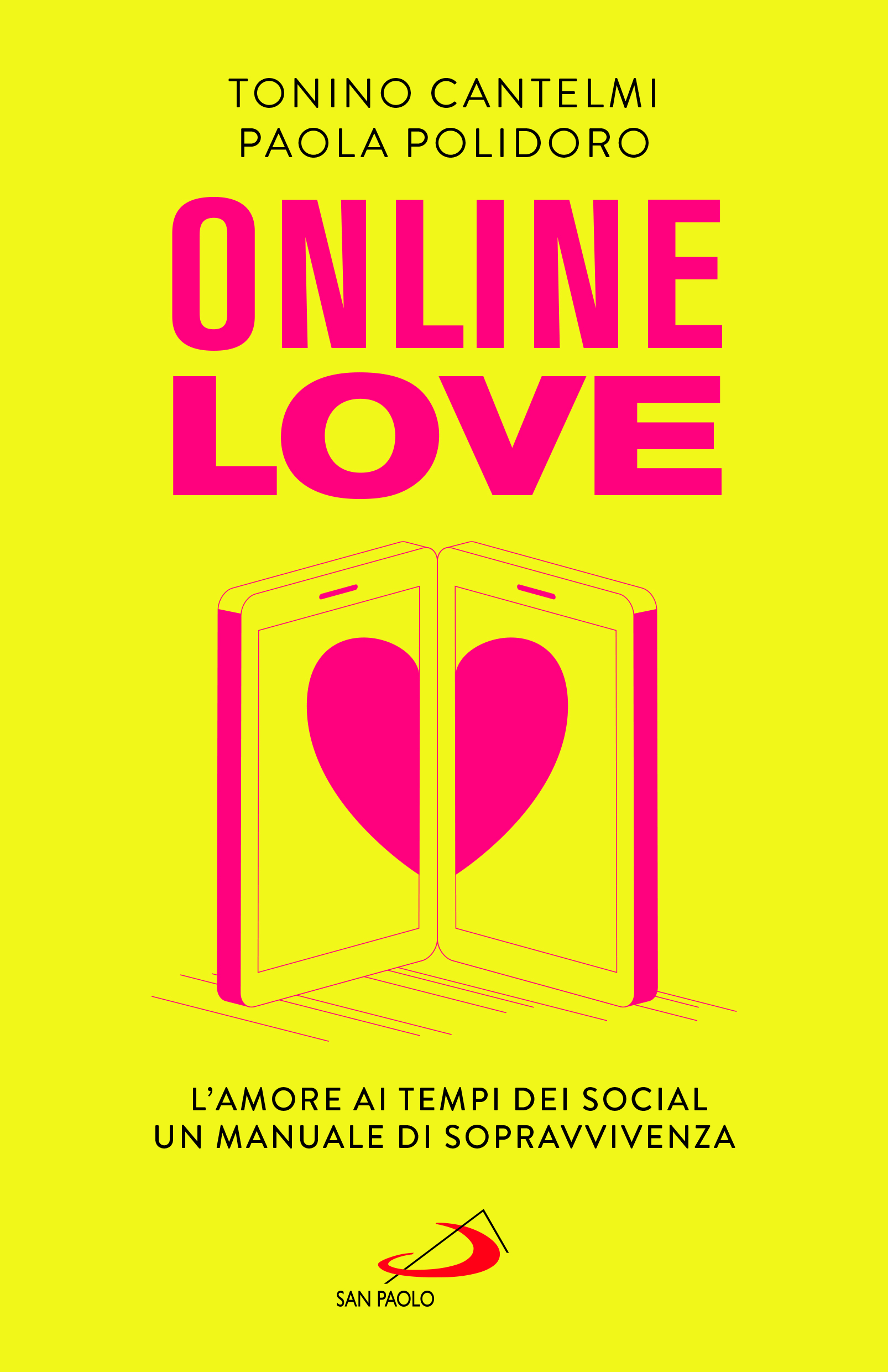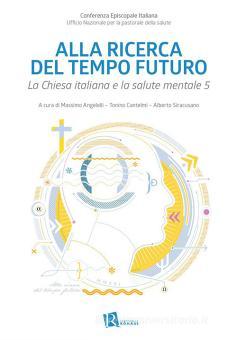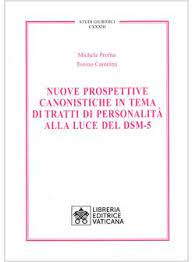12/04/2008
BIBLIOGRAFIA (Catt. e Ps.) di T. Cantelmi - (8/8)

Cattolici e Psiche
«BIBLIOGRAFIA»
di Tonino Cantelmi
Pubblicato su Psichiatri Oggi – aprile 2008, anno X, n. 2

AltraPsicologia (2008), Omosessualità? Oggi si può guarire!, Articolo del 01-01-2008.
American Academy of Pediatrics (2004), Sexual Orientation and Adolescents, in: “Pediatrics”, 113(6): 1827-1832.
American Counseling Association, Ethical issues related to conversion or reparative therapy, News del 22-05-2006.
American Psychiatric Association (1973), Homosexuality and Sexual Orientation Disturbance. Proposed Change in DSM-II, 6th Printing, page 44, Position Statement approvato in Novembre 1973.
American Psychiatric Association (2000), Therapies Focused on Attempts to Change Sexual Orientation (Reparative or Conversion Therapies), Position Statement approvato in maggio 2000.
American Psychiatric Association, (1973) Homosexuality and Sexual Orientation Disturbance. Proposed Change in DSM-II, 6th Printing, page 44, Document Reference No. 730008
American Psychiatric Association, Psychiatric Treatment and Sexual Orientation, Position Statement approvato in Dicembre 1998.
American Psychological Association (2008), Answers to Your Questions About Sexual Orientation and Homosexuality. What Causes a Person To Have a Particular Sexual Orientation?, http://www.apa.org/topics/orientation.html.
American Psychological Association, Resolution Raises Ethical Concerns About Attempts to Change Sexual Orientation, Reaffirms Psychology's Opposition to Homophobia and Client's Rights to Unbiased Treatment, Risoluzione approvata in Agosto 1997.
Arizmendi T. G., Beutler L. E., Shanfield S. B., Crago M. e Hagaman R. (1985), Client-therapist value similarity and psychotherapy outcome. A microscopic analysis, in: “Psychotherapy”, 22: 16-21.
Arthur C. Houts A. C. e Graham K. (1986), Can Religion Make You Crazy? Impact of Client and Therapist
Association of Gay and Lesbian Psychiatrist (2008), Gay, Lesbian and Bisexual Issues. What causes Homosexuality/Heterosexuality/Bisexuality?, http://www.aglp.org/pages/cfactsheets.html#Anchor-Gay-14210.
Beit-Hallahmi B. (1977), The beliefs of psychologists and the psychology of religion, in: “Malony H. N. (a cura di), Current perspectives in the psychology of religion. Eerdmans, Grand Rapids, MI.
Bergin A. E. (1980), Psychotherapy and religious values, in: “Journal of Consulting and Clinical Psychology”, 48: 95-105
Bergin A. E. (1985), Proposed values for guiding and evaluating counselling and psychotherapy, in: “Counseling and Values”, 29: 99-116.
Bergin A. E. (1991), Values and religious issues in psychotherapy and mental health, in: “American Psychologist”, 46: 394-403.
Bergin, A. (1983). Religiosity and mental health. A critical reevaluation and meta-analysis, in: “Professional Psychology: Research and Practice”, 14:170-184.
Beutler L. E., Pollack S. e Jobe A. (1978), "Acceptance," values, and therapeutic change, in: “Journal of Consulting and Clinical Psychology”, 46: 198-199.
Beutler L. E. (1979), Values, beliefs, religion and the persuasive influence of psychotherapy, in: “Psychotherapy: Theory, Research, and Practice”, 16: 432–440.
Beutler L. E. (1981). Convergence in counseling and psychotherapy. A current look, in: “Clinical Psychology Review”, 1: 79-101.
Beutler L. E. e Bergan J. (1991), Value change in counseling and psychotherapy. A search for scientific credibility, in: “Journal of Counseling Psychology”, 38: 16-24.
Beutler L. E., Arizmendi T. G., Crago M., Shanfield S. e Hagaman, R. (1983). The effects of value similarity and clients' persuadability on value convergence and psychotherapy improvement, in”Journal of Social and Clinical Psychology”, 1: 231-245.
Beutler L. E., Crago M. e Arizmendi T. G. (1986), Research on therapist variables in psychotherapy, in: Garfield S. L. e Bergin A. E. (a cura di), Handbook of psychotherapy and behavior change, Wiley, New York: Wiley, 257-310.
Cantelmi et al. (2004), Psicologia e teologia in dialogo. Aspetti tematici per la pastorale odierna, San Paolo Edizioni, Milano.
Cantelmi T. (2007a), La lettera del Prof. Tonino Cantelmi che difende il suo operato. Nessun pregiudizio o terapia forzata, solo professionalità per chi chiede aiuto, in: Liberazione del 27-12-2007.
Cantelmi T. (2007b), Dichiarazione di Tonino Cantelmi, in: Agenzia DIRE del 29-12-2007
Cantelmi T. (2008a), Se gli psicoterapeuti non rispettano i valori religiosi, in: Avvenire del 06-01-2008.
Cantelmi T. (2008b), Il presidente dell’Arcigay ascolti i miei pazienti, in Avvenire del 10-01-2008.
Charlotte J. Patterson C. J. (2008), Sexual Orientation Across the Life Span. Introduction to the Special Section, in: “Developmental Psychology”, 44(1): 1–4
COISP, Morte di Gabriele Sandri - Il Coisp presenta denuncia-querela presso la Procura di Roma contro il giornalista Davide Varì, del quotidiano “Liberazione”, per aver manipolato dichiarazioni del Coisp e pertanto diffamato lo stesso sindacato e la Polizia a mezzo stampa, 19-11-2007, http://snipurl.com/213jv.
Consiglio Nazionale dell’Ordine degli Psicologi (1997), Codice Deontologico degli psicologi italiani. Testo approvato dal Consiglio Nazionale dell’Ordine nell’adunanza del 27-28 giugno 1997
Cruiz D. (1999), Controlling Desires: Sexual Orientation Conversion and the Limits of Knowledge and Law, in: “Southern California Law Review 1297”, 72:1297-1400.
Cummings N. A. e O’Donohue W. T. (2005), Psychology’s Surrender to Political Correctness, in: Wright R. H. e Cummings N. A., Destructive Trends in Mental Health: The Well-Intentioned Path to Harm, New York: Routledge.
D’Augelli, A. R. (1996). Lesbian, gay, and bisexual development during adolescence and young adulthood. In R. P. Cabaj & T. S. Stein (a cura di), Textbook of homosexuality and mental health, Hawthorn Press, New York, 267–288.
Daines B. (1988), Assumptions and values in sexual and marital therapy, in: “Sexual and Marital Therapy”, 3: 149-164.
Delaney H. D., Miller W. R. e Bisonò A. M. (2007), Religiosity and Spirituality Among Psychologists: A Survey of Clinician Members of the American Psychological Association, in: “Professional Psychology: Research and Practice”, 38(5): 538–546.
DiClemente C. C. e Delaney H. D. (2005), Implications of Judeo-Christian views of human nature, motivation, and change for the scienceand practice of psychology, in: “Miller W. R. e Delaney H. D. (a cura di), Judeo-Christian perspectives of psychology. Human nature, motivation, and change, American Psychological Association, Washington, DC, 271–289.
Doherty W. J. (1997), Scrutare l’anima. Responsabilità morale e psicoterapia, Raffaello Cortina Editore, Milano.
Ford M. P. e Hendrick S. S. (2003), Therapists’ Sexual Values for Self and Clients: Implications for Practice and Training, in: “Professional Psychology: Research and Practice”, 34(1): 80–87.
Fortier C. e Julien D. (2003), Les psychothérapies de conversion pour les personnes gaies, lesbiennes et bisexuelles. Enjeux éthiques et déontologiques, in: "Canadian Psychology/Psychologie canadienne", 44(4): 332-350.
Gartner J. (1996), Religious commitment, mental health, and prosocial behaviour. A review of the empirical literature, in: Shafranske E. P. (a cura di), Religion and the clinical practice of psychology, American Psychological Association, Washington, DC, 187–214.
Gartner J., Larson D. B. e Allen G. D. (1991), Religious commitment and mental health. A review of the empirical literature, in; “Journal of Psychology and Theology”, 19: 6–25.
Gorsuch R. e Miller W. R. (1999), Measuring spirituality, in: Miller W. R. (a cura di), Integrating spirituality into treatment: Resources for practitioners, American Psychological Association, Washington, DC, pp. 47–64.
Grillini F. (2008), Nota stampa. On. Grillini (socialisti). Terapie ai gay. L'Ordine dei Medici smentisce la senatrice Binetti, http://www.grillini.it/show.php?5256.
Guidano V. F. (1996), Lo sviluppo del Sé, in: Bara B. G. (a cura di), Nuovo manuale di psicoterapia cognitiva. Volume primo: Teoria, Bollati Boringhieri, Torino, 134-152.
Hackney C. H. e Sanders G. S. (2003), Religiosity and mental health. A meta-analysis of recent studies, in: “Journal for the Scientific Study of Religion”, 42: 43–55.
Haldeman D. C. (2002), Gay Rights, Patient Rights: The Implications of Sexual Orientation Conversion Therapy, in: “Professional Psychology: Research and Practice”, 33(3): 260–264.
Hare-Mustin R. T., Marecek J., Kaplan A. G. & Lbslevinson N. (1979). Rights of clients, responsibilities of therapists, in: “American Psychologist”, 34: 3-16.
Hill, P. C. e Hood R. W. Jr. (1999). Measures of religious behavior. Religious Education Press, Birmingham, AL.
Hillowe B. V. (1985), The effect of religiosity of the therapist and patient on clinical judgment, in: “Dissertation Abstracts International”, Adelphia University, 46, 1687.
Hlasny R. G. e McCarrey M. W. (1980), Similarity of values and warmth effects on clients' trust and perceived therapist's effectiveness, in: “Psychological Reports”, 46: 1111-1118.
Houts A. C. e Graham K. (1986), Can Religion Make You Crazy? Impact of Client and Therapist Religious Values on Clinical Judgments, in: “Journal of Consulting and Clinkal Psychology”, 54(2): 267-271.
Hummer R. A., Rogers R. G., Nam C. B. e Ellison C. G. (1999), Religious involvement and U.S. adult mortality, in: “Demography”, 36: 273–285.
Humphries R. H. (1982), Therapeutic neutrality reconsidered, in: “Journal of Religion and Health”, 21:124-131.
James W. (1890), Principles of psychology, Holt, New York.
James W. (1902), The varieties of religious experience, Longmans, New York.
Jensen J. P. e Bergin A. E. (1988), Mental health values of professional therapists. A national interdisciplinary survey, in: “Professional Psychology Research and Practice”, 19: 290-297.
Jones M. A. e Botsko M. (2003) Predictors of psychotherapeutic benefit of lesbian, gay and bisexual clients. The effect of sexual orientation matching and other factors, in: “Psychotherapy: Theory, Research, Practice, Training”, 40(4): 289–301.
Kahn J. A. e Cross D. G. (1983), Mental health professional and client values. Similar or different?, in: “Australian Journal of Sex, Marriage and Family”, 4: 71–78.
Kelly T. A. (1990). The roles of values in psychotherapy. A critical review of process and outcome effects, in: “Clinical. Psychology Review”, 10: 171-176.
Kelly T. A. e Strupp H. H. (1992), Patient and Therapist Values in Psychotherapy: Perceived Changes, Assimilation, Similarity, and Outcome, in: “Journal of Consulting and Clinical Psychology”, 60(1): 34-40.
Khan J. A. & Cross D. G. (1983), Mental health professional and client values: Similar or different?, in: “Australian Journal of Sex, Marriage & Family”, 4: 71-78.
Koenig H. G. e Larson D. B. (2001), Religion and mental health. Evidence for an association, in: “International Review of Psychiatry”, 13: 67–78.
Koenig H. G., McCullough M. E. e Larson D. B. (2001), Handbook of religion and health, Oxford University Press, New York.
Larson D. B. et al. (1992). Associations between dimensions of religious commitment and mental health reported in the American Journal of Psychiatry and Archives of General Psychiatry: 1978–1989, in: “American Journal of Psychiatry”, 149: 557–559.
Lasser J. S. e Gottlieb M. C. (2004), Treating Patients Distressed Regarding Their Sexual Orientation: Clinical and Ethical Alternatives, in: “Professional Psychology: Research and Practice”, 35(2): 194–200.
Lewis K. N., Davis C. S. e Lesmeister R. (1983), Pretherapy information. An investigation of client responses, in: “Journal of Counseling Psychology”, 30: 108-112.
Liotti G. e Tombolini L. (2006), Terapia cognitive e prospettiva cognitivo-evoluzionista nel lavoro clinico con gay e lesbiche, in: Rigliano P. e Graglia M. (a cura di), Gay e lesbiche in terapia, Raffaello Cortina Editore, Milano.
London, P. (1986). The modes and morals of psychotherapy, McGraw-Hill, Washington, DC.
Lovinger R. J. (1984), Working with religious issues in therapy, Aronson, New York.
Mancuso A., (2007), I "guaritori" anti-scientifici, Articolo del 24-12-2007, http://www.arcigay.it/guaritori-anti-scientifici.
Meehl P. E. (1959), Some technical and axiological problems in the therapeutic handling of religious and valuation material, in: “Journal of Counseling Psychology”, 6: 255–259.
Members of the American Psychological Association
Miller W. R. (1999), Diversity training in spiritual and religious issues, in: Miller W. R. (a cura di), Integrating spirituality into treatment. Resources for practitioners, American Psychological Association, Washington, DC, 253–263.
Miller W. R. e & Delaney H. D. (a cura di) (2005), Judeo-Christian perspectives on psychology, Human nature, motivation, and change, American Psychological Association, Washington, DC.
Murray E. J. (1956), A content-analysis method for studying psychotherapy, in: “Psychological Monographs”, 420.
Neeleman J. e King M. B. (1993), Psychiatrists’ religious attitudes in relation to their clinical practice. A survey of 231 psychiatrists, in: “Acta Psychiatrica Scandinavica”, 88: 420–424.
Palma G. L. (2008), Omossessualità e “terapia riparativa”. Lo psicologo non deroga mai, Documento del 08/01/2008, http://www.psy.it/documenti/Omosessualita_terpie.pdf.
Payne I. R., Bergin A. E., Bielema K. A. e Jenkins P. H. (1991), Review of religion and mental health. Prevention and the enhancement of psychosocial functioning, in: “Prevention in Human Services”, 9: 11–40.
Powell L. H., Shahabi L. e Thoresen C. E. (2003), Religion and spirituality. Linkages to physical health, in: “American Psychologist”, 58: 36–52.
Propst L. R., Ostrom R., Watkins P., Dean T. e Mashburn D. (1992), Comparative efficacy of religious and nonreligious cognitive–behavioral therapy for the treatment of clinical depression in religious individuals, in: “Journal of Consulting and Clinical Psychology”, 60: 94–103.
Ragan C., Malony H. N. e Beit-Hallahmi B. (1980), Psychologists and religion. Professional factors associated with personal beliefs, in: “Review of Religious Research”, 21: 208–217.
Rappoport A. (s.a.), The Experience of the Therapist, http://www.alanrappoport.com
Religion in America. (1981), Gallup Organization and the Princeton Religion Research Center, Princeton.
Religiosity and Spirituality Among Psychologists: A Survey of Clinician
Religious Values on Clinical Judgments, in: “Journal of Consulting and Clincal Psychology”, 54(2): 267-271.
Renik O. (1996), The perils of neutrality, in: “The Psychoanalytic Quarterly”, 3: 495-317.
Richards P. S. e Bergin A. E. (2005), A spiritual strategy for counselling and psychotherapy, American Psychological Association, Washington, DC.
Richards P. S. e Davison M. L. (1989), The effects of theistic and atheistic counselor values on client trust. A multidimensional scaling analysis, in: “Counseling and Values”, 33: 109-120.
Risé C. (2008), L’ideologia nega il dolore che invece va ascoltato, in: Avvenire del 15.01.2008.
Roman M., Charles E. e Karasu T. B. (1978), The value system of psychotherapists and changing mores, in: “Psychotherapy: Theory, Research, and Practice”, 15: 409–415.
Roper Center for Public Opinion Research (1991), Politics of the professorate, in: “The Public Perspective”, July–August, 86–87.
Rosenthal D. (1955), Changes in some moral values following psychotherapy, in: “Journal of Consulting Psychology”, 19: 431–436.
Serlin I. (2004), Spiritual diversity and clinical practice, in: Chin J. L. (a cura di), The psychology of prejudice and discrimination, Vol. 4: Disability, religion, physique, and other traits, Praeger , Westport, CT, 27–49.
Seybold K. S. e Hill P. C. (2001), The role of religion and spirituality in mental and physical health, in: “Current Directions in Psychological Science”, 10: 21–24.
Shafranske E. P. e Malony H. N. (1990), Clinical psychologists’ religious and spiritual orientations and their practice of psychotherapy, in: “Psychotherapy”, 27: 72–78.
Shidlo A. e Schroeder M. (2000), National study of sexual orientation conversion: Empirical and conceptual issues, 108° Convegno Annuale dell’American Psychological Association, Washington, DC.
Shidlo A. e Schroeder M. (2002), Changing Sexual Orientation: A Consumers’ Report, in: “Professional Psychology: Research and Practice Copyright”, 33 (3): 249–259.
Smiley T. (2001), Clinical psychology and religion. A survey of attitudes and practices of clinical psychologists in South East England. University of Surrey, Guilford, Surrey, England.
Spitzer (2003), Can some gay men and lesbians change their sexual orientation? 200 participants reporting a change from homosexual to heterosexual orientation, in: “Archives of Sexual Behavior”, (32)5: 403-417.
Strupp H. H. (1980), Humanism and psychotherapy: A personal statement of the therapist's essential values, in: “Psychotherapy: Theory, Research and Practice”, 17: 396-400.
Throckmorton W. (1998), Efforts to modify sexual orientation. A review of outcome literature and ethical issues, in: “Journal of Mental Health Counseling”, 20: 283–304.
Throckmorton, W. (2002). Initial empirical and clinical findings concerning the change process for ex-gays, in: “Professional Psychology: Research and Practice”, 33(3), 242–248.
Tjeltveit A. C. (1986), The ethics of value conversion in psychotherapy. Appropriate and inappropriate therapist influence on client values, in: “Clinical Psychological Review”, 6: 515–537.
Tjeltveit A. C. (1999), Ethics and values in psychotherapy. Routledge, New York.
Truax C. B. (1956), Reinforcement and nonreinforcement in Rogerian psychotherapy, in: “Journal of Abnormal Psychology”, 71: 1-9.
Veroff J., Kulka R. A. e Douvan E. (1981), Mental Health in America. Basic Books, New York.
Weisskopf-Joelson E. (1980), Values. The enfant terrible of psychotherapy; in: “Psychotherapy: Theory, Research and Practice”, 17: 459-466.
Weisskopf-Joelson E. (1980). Values. The "enfant terrible" of psychotherapy, in: “Psychotherapy: Theory, Research, and Practice”, 17: 459-466.
Williams D. C. (2004). Therapists’ perspectives on the process of change in psychotherapy, University of Memphis, Memphis, TN.
Williams D. C. e Levitt H. M. (2007), A Qualitative Investigation of Eminent Therapists’ Values Within Psychotherapy. Developing Integrative Principles for Moment-to-Moment Psychotherapy Practice, in: “Journal of Psychotherapy Integration”, 17(2):159-184.
World Health Organization (2007), International Classification of Deseases, http://www.who.int/classifications/apps/icd/icd10online/.
Worthington E. L. Jr. (1988), Understanding the values of religious clients. A model and its application to counselling, in: “Journal of Counseling Psychology”, 35: 166–174.
Worthington E. L. JR. e Scott G. G. (1983), Goal selection for counseling with potentially religious clients by professional and student counselors in explicitly Christian or secular settings, in: “Journal of Psychology and Theology”, 11: 318–329.
Yarhouse M. A. (1998a), Group therapies for homosexuals seeking change, in: “Journal of Psychology and Theology”, 26: 247–258.
Yarhouse M. A. (1998b), When families present with concerns about an adolescent’s experience of same-sex attraction, in: “The American Journal of Family Therapy”, 26: 321–330.
Yarhouse M. A. e Throckmorton W. (2002), Ethical issues in attempts to ban reorientation therapies, in: “Psychotherapy: Theory/Research/Practice/Training”, 39(1): 66–75.










